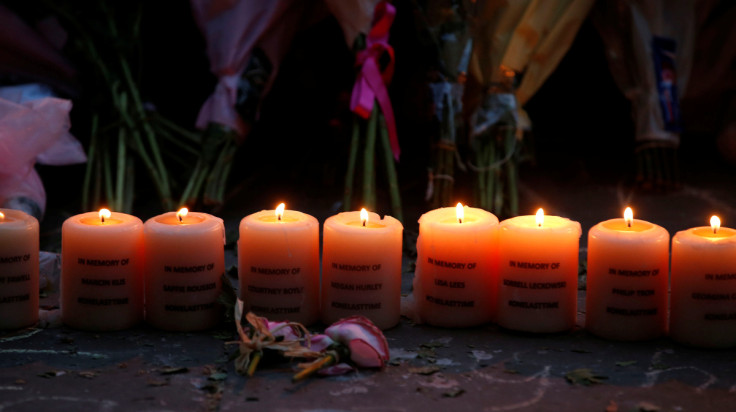Victim Could Have Survived UK Bomb Attack But For Flawed Response, Inquiry Says

One of those killed in a suicide bomb attack at a concert in the English city of Manchester in 2017 would probably have survived if the response by the emergency services had not been so flawed, an inquiry concluded on Thursday.
Twenty-two people - the youngest aged just eight - died in the attack and more than 200 were injured when a man detonated a bomb at Manchester Arena as parents arrived to collect their children at the end of a concert by U.S. singer Ariana Grande.
In a damning report, inquiry chairman John Saunders said while there had been individual acts of courage to help the victims, "many things did go badly wrong".
"Those who have listened to the evidence will not be surprised that I am highly critical of many aspects of the rescue operation," he said, adding that there had been significant failings by a number of organisations.
In his report, Saunders concluded that one victim, John Atkinson, 28, who had received tickets to go the concert as a Christmas present, could have survived his serious injuries had he received prompt medical treatment.
Like the others caught up in the blast, Atkinson was carried out of the venue on advertising hoardings and railings used as makeshift stretchers, while there was a shortage of ambulances to take the injured to hospital.
"It is now clear beyond any doubt that on the night of the bombing John was totally failed at every stage," his family said in a statement.
Saunders said one of the most upsetting parts of the inquiry was hearing from rescuers and the injured "who heard the sirens of the ambulances outside and expected to see paramedics arriving imminently, and then hearing of their despair when so many fewer than they reasonably expected actually arrived".
While the evidence was conclusive that 20 victims would have died of their injuries, Saunders said there was a remote possibility that the youngest to die, Saffie-Rose Roussos, might have survived if the rescue operation had been handled differently.
The inquiry heard harrowing accounts of how she too was taken out on a makeshift stretcher, at one stage asking a paramedic: "Am I going to die?" Her father Andrew had told the inquiry the response had been "shameful and inadequate".
Kim Harrison, from law firm Slater and Gordon which represented 12 families, said the report had confirmed their fears about the "catastrophic failings of the emergency services" and that the system needed a complete overhaul.
Interior minister Suella Braverman said she would carefully consider the many recommendations made by Saunders.
"Without doubt, our emergency services show incredible courage when responding to incidents of this magnitude," she said on Twitter.
Saunders' report is the second of three examining the May 22 bombing. The first looked at failings in security at the venue itself, while the third will examine whether the police and intelligence agencies could have done more to have prevented it.
The attack, the deadliest in Britain since the 2005 London transport suicide bombings, was carried out by Salman Abedi, 22, while his younger brother Hashem was jailed for 55 years in 2020 for encouraging and helping him.
A third elder brother, Ismail, was in July convicted in his absence of failing to attend the inquiry to give evidence, having fled Britain. The Abedi brothers were born to Libyan parents who emigrated to Britain during the rule of Muammar Gaddafi.
© Copyright Thomson Reuters 2024. All rights reserved.











